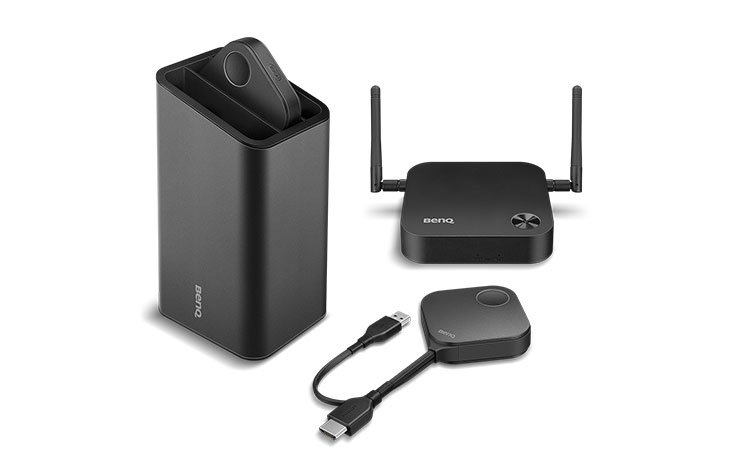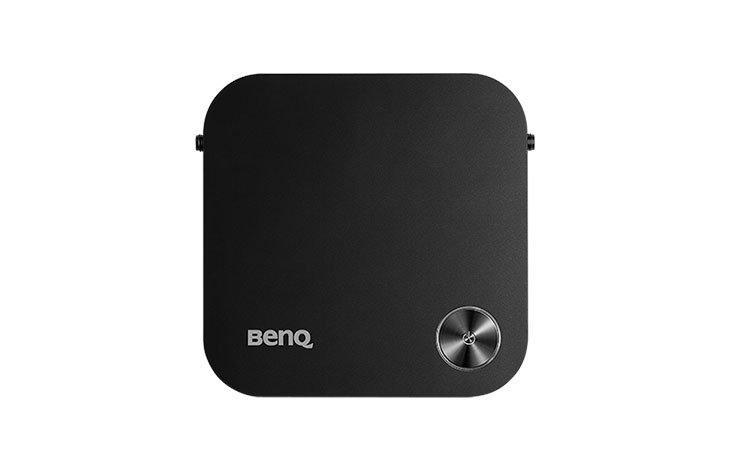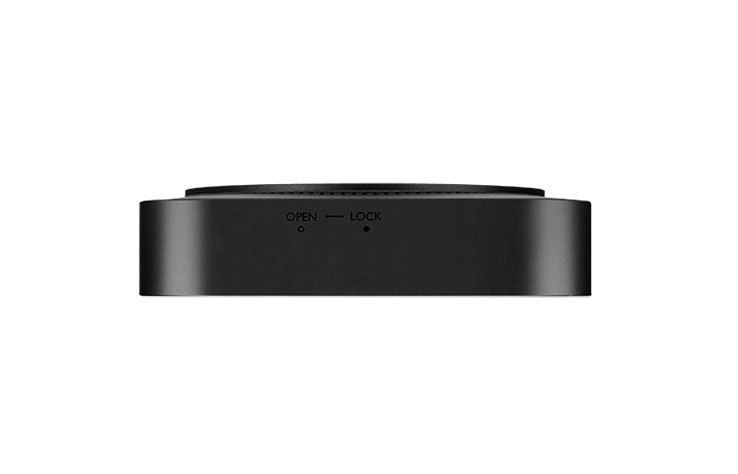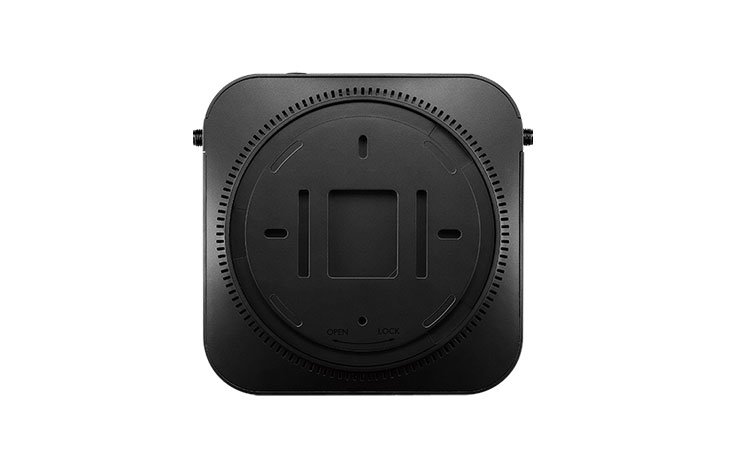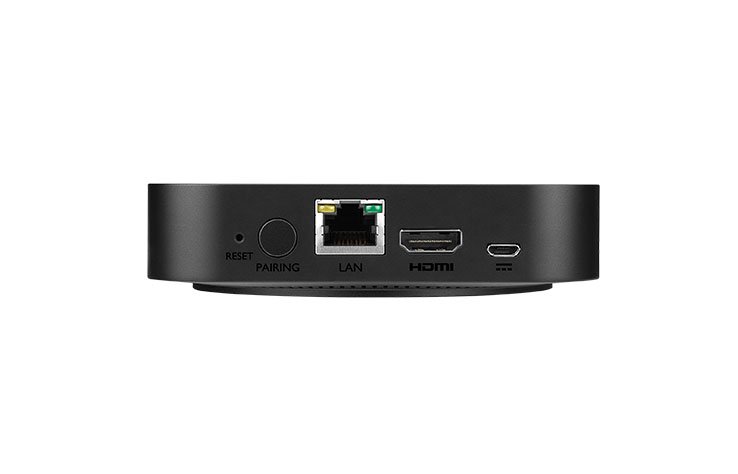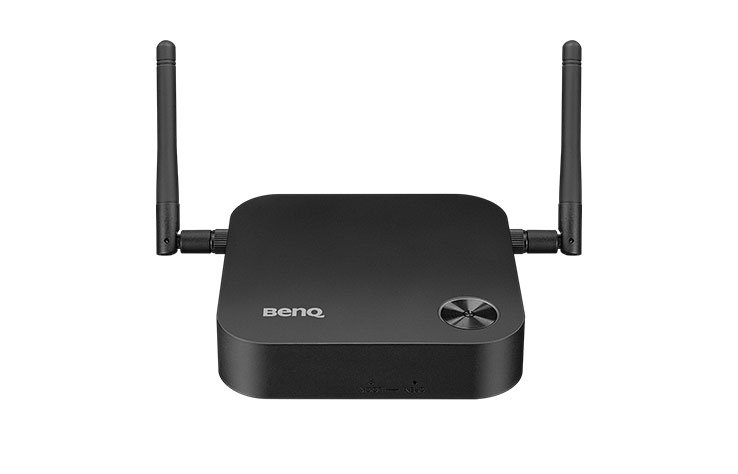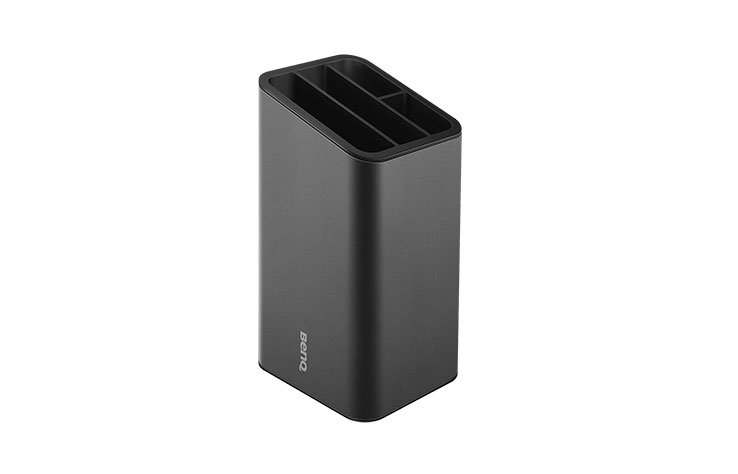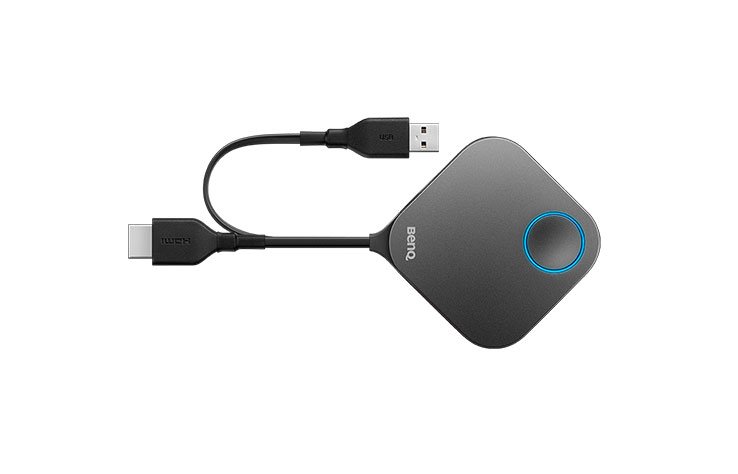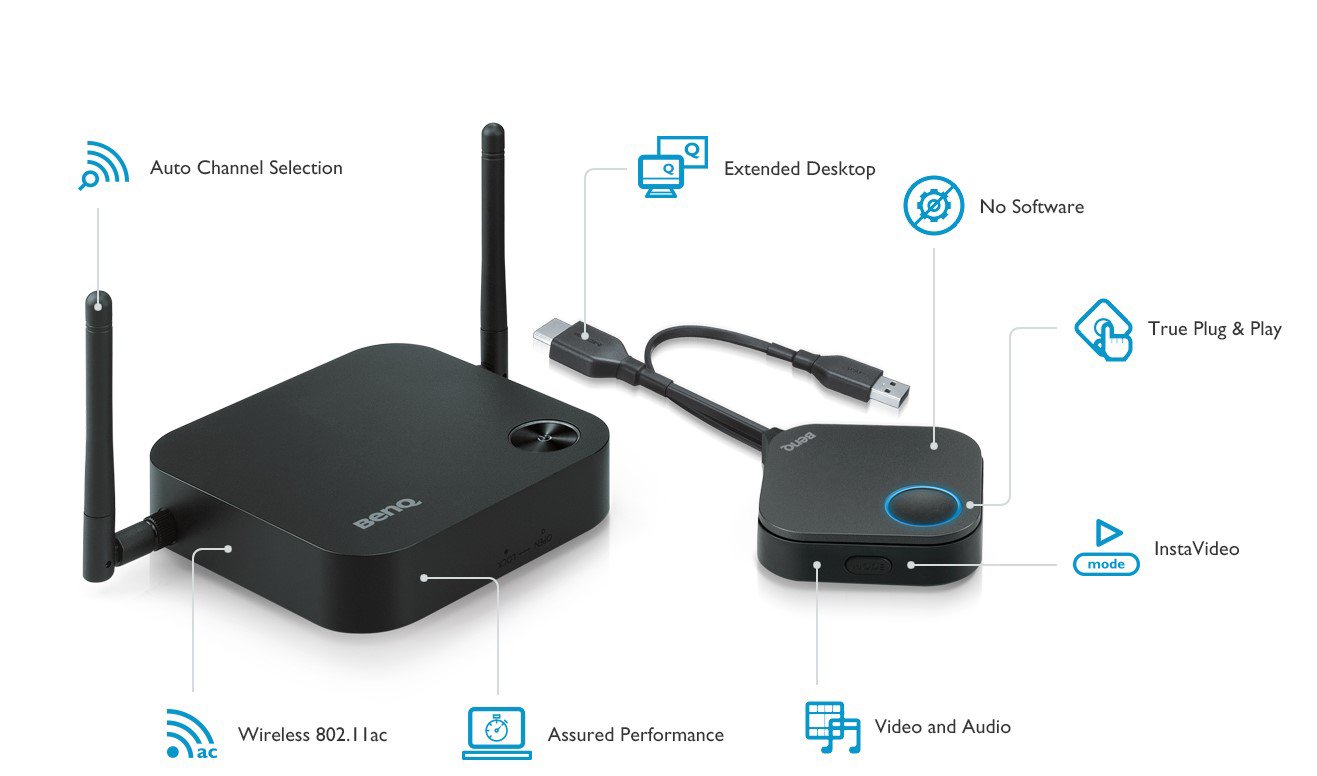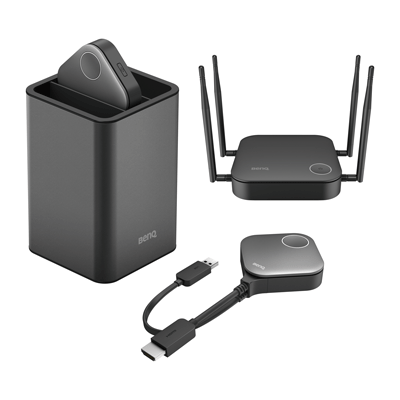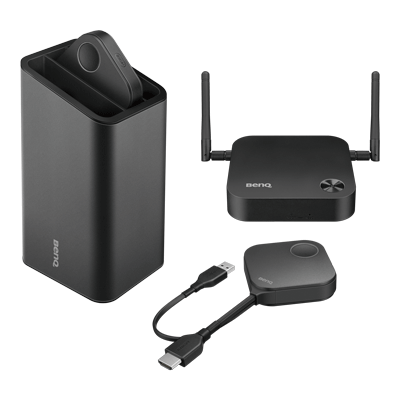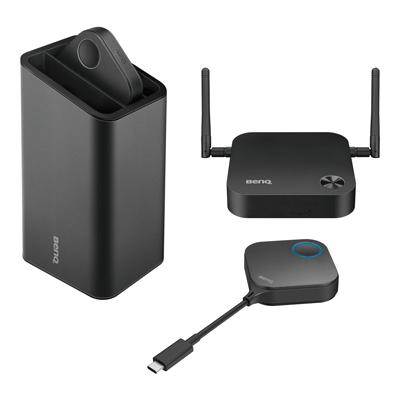5 Reasons You Need Wireless Screen Mirroring for an Effective Business Meeting
- BenQ
- 2020-03-23


As a business owner or manager, you are always looking for ways to improve productivity and facilitate better interaction among team members and stakeholders. With the advent of COVID-19 and social distancing requirments in the office, the need for easy-to-use wireless screen mirroring is paramount. Compared to the traditional approach of using (and sharing) fixed HDMI cables, new wireless screen mirroring devices can transform the productivity of your collaboration spaces – without spending a fortune.
Let’s look at five core reasons why you want to incorporate a wireless screen mirroring in your classrooms, meeting rooms, and corporate collaboration spaces.
In a traditional huddle space or meeting room, presenters have to sit near the cable to make sure their system can display on the screen. Wireless screen mirroring technology is designed to eliminate the hassle of cable management- and enable effective collaboration regardless of where the anyone is sitting.
With the newest wireless screen mirroring solutions, users do not have to worry about connecting to a display with apps, network access, or anything else. You simply plug in a button to any laptop or tablet (or select "screen mirroring" from your mobile device), and in a few seconds you and your employees are concentrating on your content instead of moving seats and sanitizing HDMI cables for the next presenter.
As researchers at Harvard and other institutions have realized, the investment in meeting room technology quickly pays for itself. In 2014, AMX indicated that 20% of meetings run late due to technical issues, which will add up over time. While the traditional AV approach of using dedicated touch panels and cables has worked well for years, a commercial-grade wireless screen-mirroring system is much easier to expand, less expensive, and is easier to adapt to new devices such as the Macbook Pro with a USB-C connection. Devices such as the BenQ InstaShow® take only seconds to share their screen, enabling a wireless screen mirroring system to quickly pay for itself in more productive meetings.
When social distancing is required, larger meeting rooms are required to foster creativity and innovation for face to face collaboration. Moving tables, seats, and displays to accomodate the needs of group health may not line up with where fixed AV infrustruture such as cables are located. Combined with the need to connect to a wide variety of devices such as phones, tablets, cameras, and media players - the need for location and device flexibility is very high.
With a wireless screen-mirroring device, you can turn any open space or meeting room into a truly flexible (and properly spaced) collaborative environment. By eliminating cables, switches and messy hardware, it can also keep your space clean and organized for anyone to use.
Meeting rooms can be expensive. For example – just the cost of purchasing, installing and hiding HDMI cables under the table and through walls for a medium-sized meeting room can cost more than the display. If you use a Crestron or similar touch panel, these systems need custom programming and “commissioning” to ensure they work right. And need to be reprogrammed every time you change something in the meeting room.
Savvy IT managers realize that for most meeting rooms - wireless presentation systems are much less expensive - and easier to deploy. For example, the BenQ InstaShow® S WDC-20 can support up to 32 different sources on a single reciever - at a fraction of the cost of a traditional wired switcher. For managers under a tight deadline, there is no wait for programming, installation, or special training. Your IT budget will also appreciate the fact that InstaShow® doesn't have any additional subscription costs for support.
We all have gotten used to technology that just works at the touch of a finger. Yet there are many screen mirroring systems that require apps to be installed on your computer, complicated network logins – and may not work with your Chromebook or media player.
IT Managers are looking for effective wireless screen mirroring systems that are able to be used with no special training or setup, without special network configurations or software deployments. Make sure to look for a true plug-n-play solution – where a visitor who is unfamiliar with the system can use it in just seconds – without any special training or instructions. You can check out the Commercial Integrator test to see how they were able to use it in their meetings.
Are you ready to upgrade your meeting room experience? Request a demo now or to learn more about InstaShow®!
